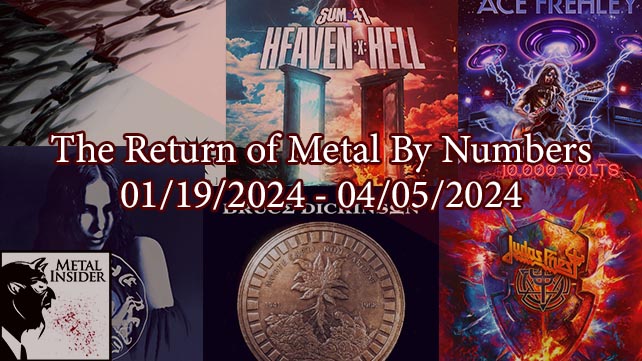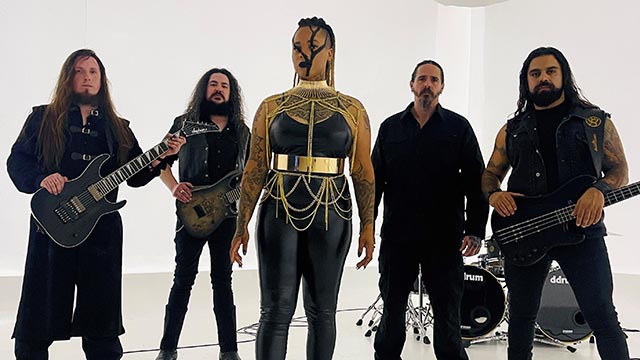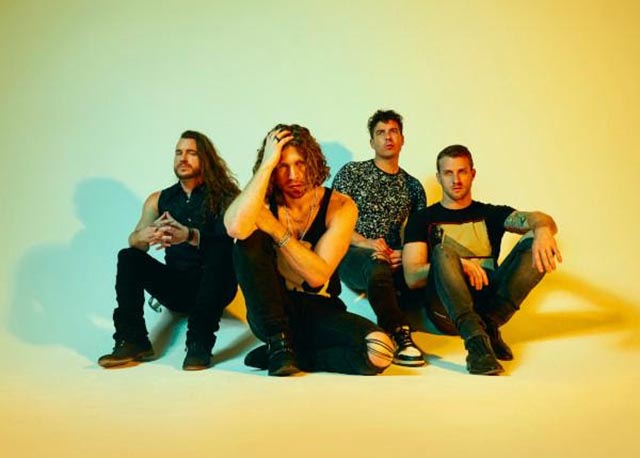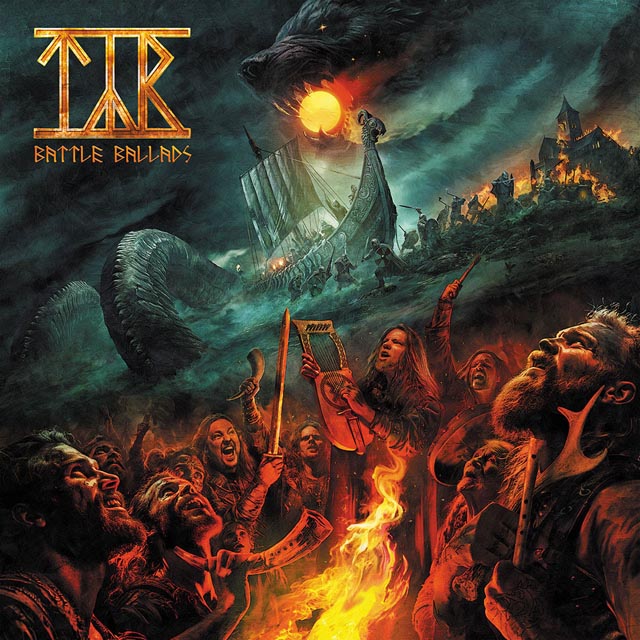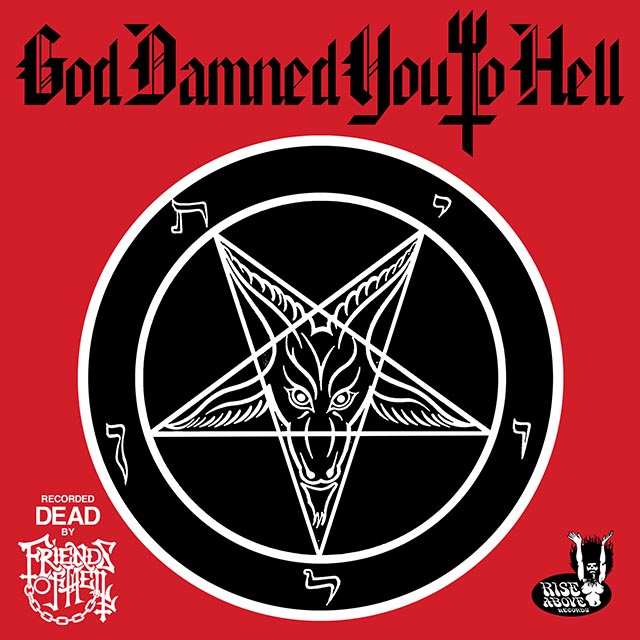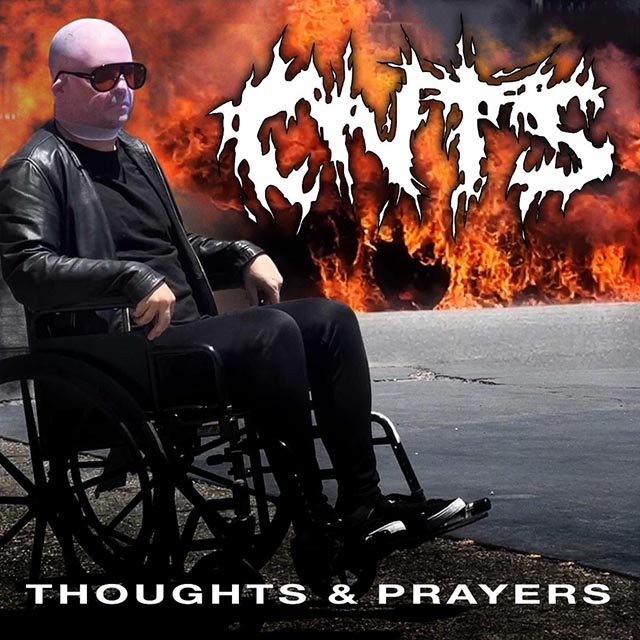 For over a decade now, Sam Dunn has been responsible for some of rock music’s most innovative documentaries, from band-focused films like Iron Maiden: Flight 666 and Rush: Beyond the Lighted Stage to movies documenting an entire genre’s culture like Metal: A Headbangers’ Journey. So for his latest effort, Dunn and his cohorts Scot McFadyen and Reginald Harkema aimed to tell the story of rock’s greatest villain; Alice Cooper. Relying on archival footage and audio interviews from Alice’s closest friends and admirers (as well as Alice himself), the film Super Duper Alice Cooper (see what they did there?) does a superb job at exploring the origins of Vincent Furnier and the garage band he started with bassist Dennis Dunaway, as well as how becoming the character of Alice Cooper brought him both the greatest highs and lows of his life. With Super Duper Alice Cooper now in select theaters and available for pre-order, we spoke to Dunn about what inspired the direction of his latest “Doc Opera,” how Alice became a cultural phenomenon at the expense of his life, and how Alice truly embodies the world “spectacular.”
For over a decade now, Sam Dunn has been responsible for some of rock music’s most innovative documentaries, from band-focused films like Iron Maiden: Flight 666 and Rush: Beyond the Lighted Stage to movies documenting an entire genre’s culture like Metal: A Headbangers’ Journey. So for his latest effort, Dunn and his cohorts Scot McFadyen and Reginald Harkema aimed to tell the story of rock’s greatest villain; Alice Cooper. Relying on archival footage and audio interviews from Alice’s closest friends and admirers (as well as Alice himself), the film Super Duper Alice Cooper (see what they did there?) does a superb job at exploring the origins of Vincent Furnier and the garage band he started with bassist Dennis Dunaway, as well as how becoming the character of Alice Cooper brought him both the greatest highs and lows of his life. With Super Duper Alice Cooper now in select theaters and available for pre-order, we spoke to Dunn about what inspired the direction of his latest “Doc Opera,” how Alice became a cultural phenomenon at the expense of his life, and how Alice truly embodies the world “spectacular.”
You’ve done so many other documentaries not just about bands, but also different genres. What inspired you to choose Alice Cooper as the focus/topic of your next film?
Well, we were approached by Alice’s manager Shep Gordon at the Classic Rock Awards in London a few years ago. We were nominated for best documentary for the Rush movie we did, and I guess Shep was thinking that now might be a good time to do a documentary on Alice. We just sort of went away and thought about it and came up with this different way telling the story, using archival footage and photographs in what we’ve called a “Doc Opera.” It just seemed to fit Alice’s character and his theatrical performance, so here we are about 2 and a half years later actually and finally releasing it at film festivals.
As you mentioned, you really relied on archival footage and pictures, which differs to your previous work. What made you choose this style to tell the story of Alice?
We’ve always used a lot of archival footage and photographs with everything that we’ve done, even with the Rush film. Our graphics guys started doing some really innovative stuff with photographs cut with performance audio because we couldn’t find any actual footage of Rush’s early shows. But with Alice, we thought that if there was one character that deserves a “Doc Opera,” it’s Alice Cooper. We just felt that here’s a performer that built his career and his notoriety on creating a spectacle. Whether it’s the guillotine, nooses, snakes, or chickens, bringing that theatrical feel to his show has always been hugely important.
There have been plenty of other films and TV bios on Alice, but I was really impressed with some of the footage and photos you were able to find, especially of Dennis [Dunaway, original bassist] and Alice way back in high school.
I think what we learned with the Rush documentary and some of the other work we’ve done, is that we like to take people back to the beginnings of the lives of rock musicians because it sheds a human perspective on who these people are. They’re larger than life characters, but when you see them in art class in the 50’s with a fascination for surrealist art and the Beatles, it just gives you a whole different insight into who these people are and where they came from. Our goal with the Alice Cooper film is to really put people in the moment and make people feel like they’re never leaving that moment. The trouble with talking head interviews is you’re constantly pulling people away from the historical timeline. We felt that digging back into the past of Alice is something that needed to be done.
One of my favorite moments was hearing Dennis talk about how disappointed he was about finding out Alice got to meet Salvador Dali without him, and the way you segued into the rift that grew within the original lineup as Alice became more famous. However, while you went into great detail about Dennis and Alice’s relationship, I was a little surprised how little the rest of the original members was mentioned in the film, or at least how guitarist Glen Buxton’s death wasn’t really addressed. Is there any reason why the original members didn’t get as much of the spotlight?
Well, what we learned as we started piecing the film together was that the friendship and the creative collaboration between Dennis and Alice was very strong. This was the foundation upon which the Alice Cooper group was built. When we started looking at how to handle the breakup of the band, it was just as much a breakup of friendship as it was of musicians. So we felt that the most interesting story, the most captivating aversion of Alice’s career should include this split between these two close friends. So I think that is the reason why Glen Buxton, Mike Bruce [guitarist], and even Neal Smith [drummer], to a large extent, didn’t get as much screen time because we just felt that it was that core friendship of Dennis and Alice that was really the most interesting dynamic of the story.
I also loved how the film really highlighted how much of a public figure Alice became when he first broke out as a “solo artist,” hanging out with celebrities like George Burns or even appearing on The Muppet Show. Which particular “pop culture” moment would you say was probably the most significant to Alice’s legacy?
I think the most powerful moment in Alice’s career, his moment of arrival if you will., was when he got to meet all of his idols. Alice’s idols weren’t necessarily legendary musicians; they were entertainers, actors, they were comedians, so when he meets Jack Benny, when he shares the stage with even Diana Ross, when he meets George Burns. When he enters this sort of league of entertainers, I think that is the true moment of arrival for Alice. The important thing to remember about Alice is he is first and foremost an entertainer, a performer. Yes he is a musician, but I think he sees himself as being in the sort of lineage of performance artists. It’s that period when The Alice Cooper Group has broken and he has gone solo and he becomes a pop cultural phenomenon. That really is the moment of arrival for him.
The reason why I even ask that is because the way I discovered Alice Cooper personally was through seeing him on The Muppet Show. How did you first discover Alice?
I first discovered Alice in the mid-80s when I was a teenager, and my favorite bands at that time were Metallica, Slayer, Iron Maiden, Sepultura, and generally really heavy music. When I saw a video of Alice Cooper’s “Poison,” I honestly didn’t think much of it. I didn’t know who Alice Cooper was beyond what I was seeing in that video, he looked like an older version of Motley Crue, Poison, and even Ratt to me. Fast forward a few years later, of course I started to learn that Alice has this deeper history. Once we’ve done Metal: A Headbangers’ Journey, we explored his role in creating that gruesome spectacle in metal music and on from there. So certainly my perspective of Alice now as compared to when I was a teenager is very different because I have deeper understanding both of how he was the DNA for KISS, Marilyn Manson, Sliplnot, Rob Zombie and even Lady Gaga. Also, his music especially in the 70s was actually quite innovating. If you listen to some of those early records you’ll hear that fascinating mix of kind of Frank Zappa meets The Beatles. So I think Alice deserves some music recognition for his musical contribution as well. 
During this whole process and the past two years of making this film, what was the most surprising thing you learned about Alice?
I think the most surprising thing I learned about Alice is that he was addicted to drugs in the late 70s and early 80s. This is something he never revealed before. When I approached Bernie Taupin for the film, he said he would only do it under the condition that he would get to talk about what he wasn’t able to talk about for decades, and that is his drug addiction and his time with Alice when he was also freebasing cocaine. I think this is something that Bernie has felt somewhat guilty about and he’s had this kind of weight on him for a long time. We approached Alice and Shep and they both said, “Okay I think we’re ready to tell this story.” And it just shed a whole different light on that period of Alice’s career. If you look at photos of him from that time, he’s incredibly gaunt, he doesn’t look healthy. Musically, he was creating this really kind of edgy frenetic, a bit scattered sound, very different than stuff he’s done in the 70s. So it just shed a whole different light on this period of Alice’s life.
I was also surprised to learn that from the film, since though his alcoholism in the early 70s is well documented, I had no clue he had battled hard drugs.
Exactly. Alice’s battles with alcoholism have been well documented and I think fans for years knew that’s something that he struggled with, but to know that he nearly died because he was freebasing was a revelation for us as filmmakers. I think we’ll give fans an even deeper insight into how much a character like Alice Cooper can threaten to take over someone’s life.
You’ve interviewed Alice, his family, his bandmates, his manager, and even Elton John. Out of all those interviews, was there one in particular that stood out to you?
I’ve got to say, I’ve had the good fortune of interviewing a lot of musicians and heroes over the last ten years. Although I’ve never been a huge Elton John fan, I have a deep respect for him as a song writer and a performer and as one of the biggest musicians to ever walk the planet. So to have that half hour to sit down with Elton and talk to him about Alice and how much Alice had influenced him was a fantastic experience. He was very gracious and it was an eye opener for us as filmmakers on how much Alice’s performance had influenced Elton. When Elton saw Alice at the Hollywood Bowl in the early 70s, Elton was just sitting behind his piano playing at the Troubadour in Los Angeles. He hadn’t yet blossomed into this flamboyant performer that he is today, and seeing Alice had a huge impact on him moving into that direction.
I myself loved hearing Elton John describing how he was fighting with people in the crowd during that Hollywood Bowl show for a pair of panties the group had dropped from airplanes above. Is there anything that you wish you could have touched upon in the film that you had to leave out?
Well in telling a story as long, deep and rich as Alice’s, there’s always going to be stuff that hits the cutting room floor that you’ll lose a few nights sleep over. We would’ve loved to have spent more time talking about the other members of the band like Mike Bruce and Glen Buxton. I would’ve even liked to spent more time talking about the relationship between Dennis and Alice and the breakup. Our goal as filmmakers is to keep people in their seats, to keep the story moving, to keep people entertained, and to really focus on what serves the story best. There are always a few things that have to hit the floor and you just sort of swallow that pill and move on.
If you could use one word to describe Alice Cooper, what would it be?
Spectacular. I mean that that in the true sense of the term, not spectacular in that he’s good, I mean that he’s the master of spectacle.
Well I know that you’re focused on promoting this film, but what’s next? What film topic are you looking forward to on working on next?
We’re creating a documentary on Soundgarden. We’re going to look at that band’s career, how they were the first band in the Seattle scene, how they rose to become the biggest band in the world in the mid-90s, and much to everyone’s surprise they called it quits. And here we are, 20 years later, and they’re back at it, so were excited to tell that story. We are close to securing a documentary with a legendary metal band that shall remain nameless for now, and we’re also doing a new biography series that is going to profile some of the biggest rock and metal musicians of all time.
That’s really exciting to hear you working on a documentary about Soundgarden. Do you find yourself in the future moving away from documenting heavy metal?
Well, music documentaries and doing films about rock and metal bands is and will always be our bread and butter, but we are expanding. We’re even doing some kids programming, a lot of live concert filming, and in the future we may get into creating dramatic feature films. But we’re big music fans and we feel there are still a lot of stories out there that need to be told on some of the greatest rock bands. Think of AC/DC, Aerosmith, Guns N’ Roses, there’s loads of bands out there that are still pulling in big audiences and have had a big impact on the history of music, but who many don’t really know much about beyond the great songs and great show. So we still see a lot of gold them hills. I wish it was gold, but in fact it’s probably more silver [laughs].


